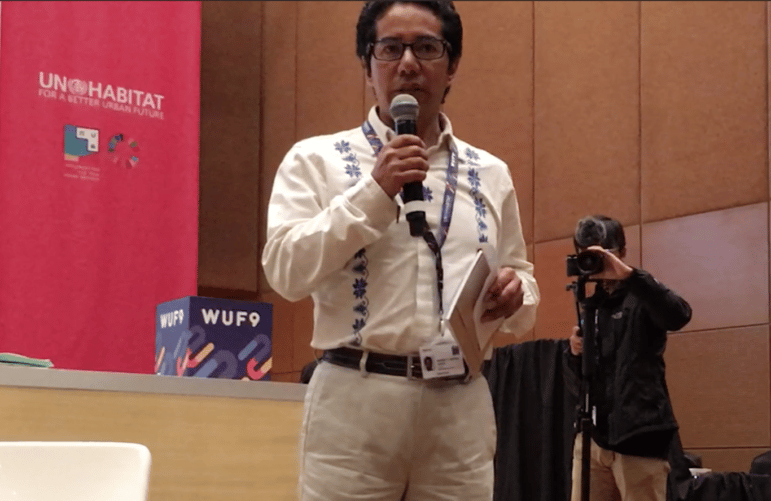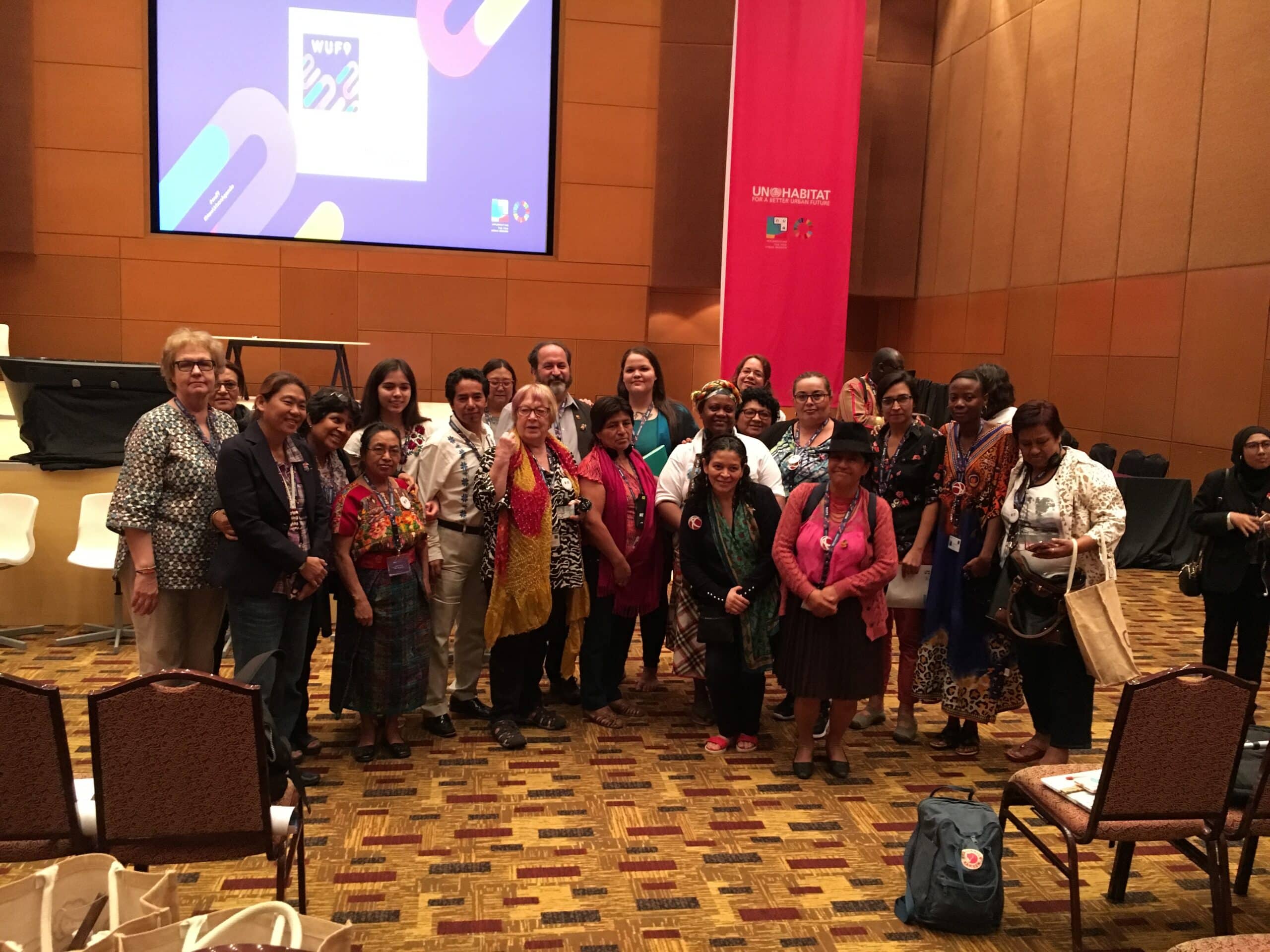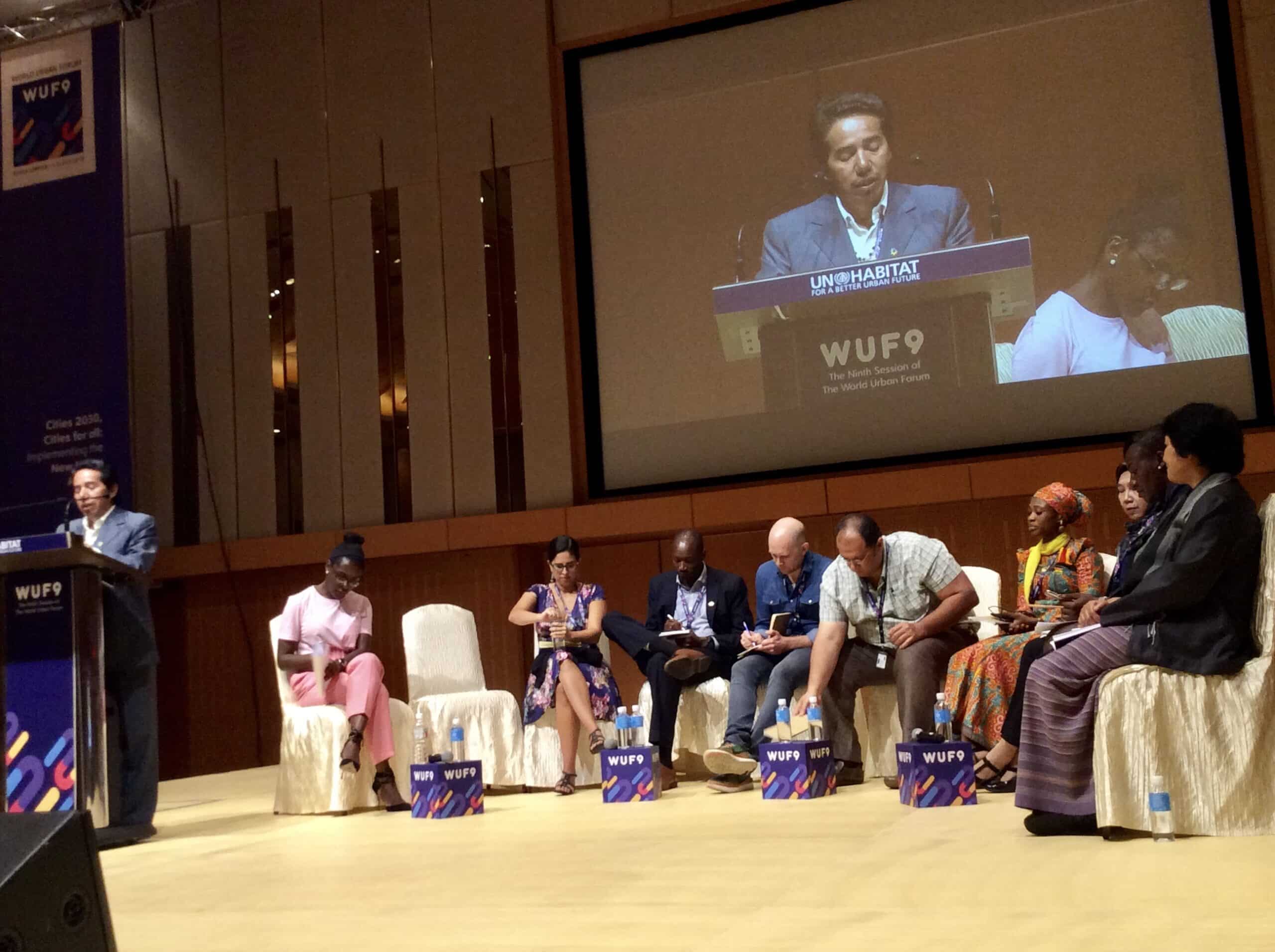
Indigenous Peoples’ Voices at the World Urban Forum 9. UN-Habitat
Original Caretakers Program – Center for Earth Ethics participation at the Ninth Session of the World Urban Forum. Kuala Lumpur, 7-13 February 2018
Mindahi Bastida-Munoz participated in the Stakeholders’ Roundtable – Indigenous Peoples Session, which focused on the problems that indigenous peoples face as migrants and as citizens in the cities. Discrimination and lack of political representation are the main problematics that Indigenous Peoples are facing. Issues about land tenure, particularly for women, were also addressed. As most of the roundtable was composed of women (see picture below), their concerns for women’s rights were amply exposed. Indigenous youth were also present and they talked about the importance of including indigenous peoples’ representatives in decision making processes. Mindahi’s presentation is in Spanish. Watch it here:
https://www.facebook.com/mindahi.bastida/videos/1830866496933333/
Mindahi Bastida-Munoz spoke at the Indigenous Peoples Round Table at the WUF9.The following are the recommendations given by Mindahi Bastida-Munoz for an effective implementation of the New Urban Agenda resulting from the discussions, to inform the WUF9 Declaration:
To include youth, children, elders and women in the capacity building and the decision taking processes.
To impulse new curriculum around ancestral wisdom and spiritual values of Indigenous Peoples
To acknowledge Indigenous Peoples wisdom around the relationship humans-nature. Cities cannot live without nature and rural areas.
To work and pull together with local, national and international stakeholders and governments in the implementation of the New Urban Agenda.
Indigenous peoples need sustainable development financial support specially for the implementation of the New Urban Agenda among indigenous peoples territories and those who live or interact with the cities.

There was also a Special Session of Civil Engagement and Participation of the Ninth Session of the World Urban Forum, where Mindahi Bastida-Munoz delivered a message about the importance of indigenous peoples’ participation in the public agenda of UN-Habitat. He asked the leaders of the world, in reference to the New Urban Agenda, to acknowledge indigenous peoples’ participation in the decision-making processes. Additionally, he noted that a new relationship between the urban and rural is needed. Modern cities cannot live without the rural areas, from where water, oxygen, food, materials come from. Also, rural areas are sinks for carbon dioxide and liquid and solid wastes.
Civic engagement and participation from all actors is key: governments cannot achieve the New Urban Agenda on their own. We need all, and we need that no one is left behind in this inclusive process when talking about cities.

As was stressed in the Special Session, “Civil engagement has been emphasized in the New Urban Agenda as part of the vision for cities and human settlements as the participation of urban dwellers fosters social cohesion, inclusion and safety in peaceful and pluralistic societies.”
During the forum, we distributed the Indigenous Peoples and the City Declaration in the Civic Engagement Session, the Indigenous Peoples’ Round Table and the Children and Youth Round Sessions.
The Indigenous Peoples and the City Declaration was produced last year by indigenous representatives from different peoples, including Mapuche, Kichua and Otomi, most of whom were young. We were invited to explore means to emphasize the importance of the recognition of indigenous peoples and communities in the design, implementation, monitoring and evaluation of the New Urban Agenda, adopted in Quito, Ecuador, in October 2016 during the UN Forum Habitat III.
Mindahi Bastida-Munoz had previously participated in two side events on Indigenous Cities organized by UN-Habitat Youth during the regional meeting for Latin America and the Caribbean on Housing and Sustainable Urban Development Habitat III held in the city of Toluca, Mexico, on April 19, 2016 and during the 15th Permanent Forum on Indigenous Issues held in New York City on May 13, 2016. He was the coordinator of this declaration. For more information, click here: Indigenous Peoples and the City.
